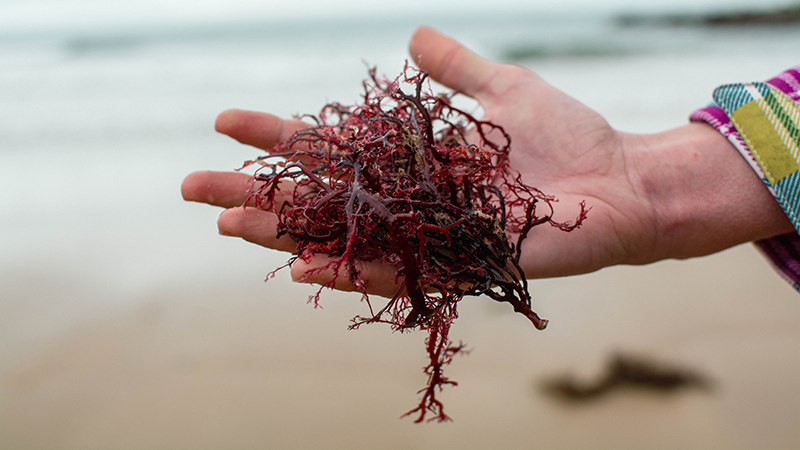Peanut Allergy Primer
Clear Answers From an Allergy Expert
Updated November 2025
Peanut butter and jelly sandwiches are a classic lunch-box favorite. But for some people, eating peanuts can be dangerous — even life-threatening. Peanut allergies are among the most common food allergies, especially in children. That leaves many parents and caregivers asking: Why are peanut allergies so common? Can they develop later in life? And can just being near peanuts cause a reaction?
To help clear up confusion, Northwestern Medicine allergy and immunology expert Amiinah Y. Kung, MD, answers common questions and shares helpful facts.
Why Are Peanut Allergies so Common?
No one knows for sure, but allergies, which are considered diseases, are often due to a combination of your genes and environment. Here are a few theories:
Hygiene hypothesis: Cleaner environments may give the immune system fewer germs to fight. That can lead to overreactions to normally harmless things like peanut proteins.
Gut bacteria: Changes in a baby's or mother's gut bacteria may increase their risk of allergic inflammation.
Dietary practices: Peanut allergies are more common in Western countries, where the roasting process changes the peanut proteins. This may trigger stronger immune responses than alternate heating processes. Other countries also tend to introduce peanuts to their children at an earlier age.
Can You Develop a Peanut Allergy Later in Life?
Most people who have peanut allergies develop them when they're babies or young children. Sometimes, teens or even adults can suddenly become allergic. This is rare, but it does happen.
In adults, it's more common to develop something called pollen-food syndrome. While this isn't a true peanut allergy, it can cause itching or mild swelling in the mouth and throat after eating peanuts. This happens when the body confuses peanut proteins with pollen proteins. These reactions are usually mild and rarely lead to serious problems like anaphylaxis.
Is Airborne Peanut Exposure Dangerous?
You might have heard stories about people having severe reactions just from being near peanuts. Science shows this is unlikely. Peanut particles are heavy and fall quickly, so they don't stay in the air long enough to enter the bloodstream. Even if someone breathes them in, the nose and lungs usually filter them out. At most, a person might get a runny nose or a cough. Serious reactions from airborne exposure are rare.
Can People With Peanut Allergies Eat Peanut Oil?
Surprisingly, highly refined peanut oil is usually safe for people with peanut allergies. That's because the allergy-causing proteins are removed during processing. However, unrefined or cold-pressed peanut oils may still contain these proteins. Always check with your doctor before trying any type of peanut oil — especially if your allergy is severe.
What Should Parents Know?
If your baby doesn't have eczema or a family history of allergies, introducing peanut products early — around 6 months old — may help prevent allergies. This should always be done with caution. Be sure to talk to your pediatrician first. Start with a small amount of a peanut product, such as smooth peanut butter (never whole peanuts), while watching closely for any reaction.
Are Peanut Allergies Genetic?
Yes, genetics play a big role. If someone in your family has allergies, even hay fever, you are more likely to have a food allergy. But environment matters, too. Kids who are not exposed to a variety of bacteria and allergens early on may develop an immune system that's more sensitive and this can increase the risk of allergies.
Can You Grow Out of a Peanut Allergy?
About 20% of people with peanut allergies eventually outgrow them. This usually happens in childhood, but sometimes later. Doctors can test to see if the allergy is still active. Even if you outgrow it, always talk to your doctor before eating peanuts again.
Are Peanut and Tree Nut Allergies the Same?
No. Peanuts are legumes, like beans and lentils. Tree nuts, such as almonds, Brazil nuts, walnuts and cashews, come from trees and have different proteins. Being allergic to one doesn't mean you're allergic to the other. However, many people are allergic to both. That might be because some of the proteins are similar, and the immune system can't tell them apart.
Can You Prevent Peanut Allergies?
There's no guaranteed way to prevent peanut allergies. Studies suggest that early introduction may help. Talk to your pediatrician before making any changes to your child's diet.
What Is Oral Immunotherapy?
Oral immunotherapy is a treatment that helps people with food allergies become less sensitive. It works like this:
- Patients take small amounts of the allergen (like peanuts) every day.
- The dose increases slowly over several months.
- The goal is to train the immune system not to overreact if there is accidental exposure to a small amount of the allergen.
This treatment must be done under strict medical supervision as it can be risky without expert guidance. Learn more about this treatment strategy from the National Institute of Allergy and Infectious Diseases (NIAID).
Final Thoughts
Peanut allergies can be scary, but understanding the facts can help you feel more confident. Talk to your doctor about testing, treatment options and safe dietary choices. With the right support, managing a peanut allergy is possible.






